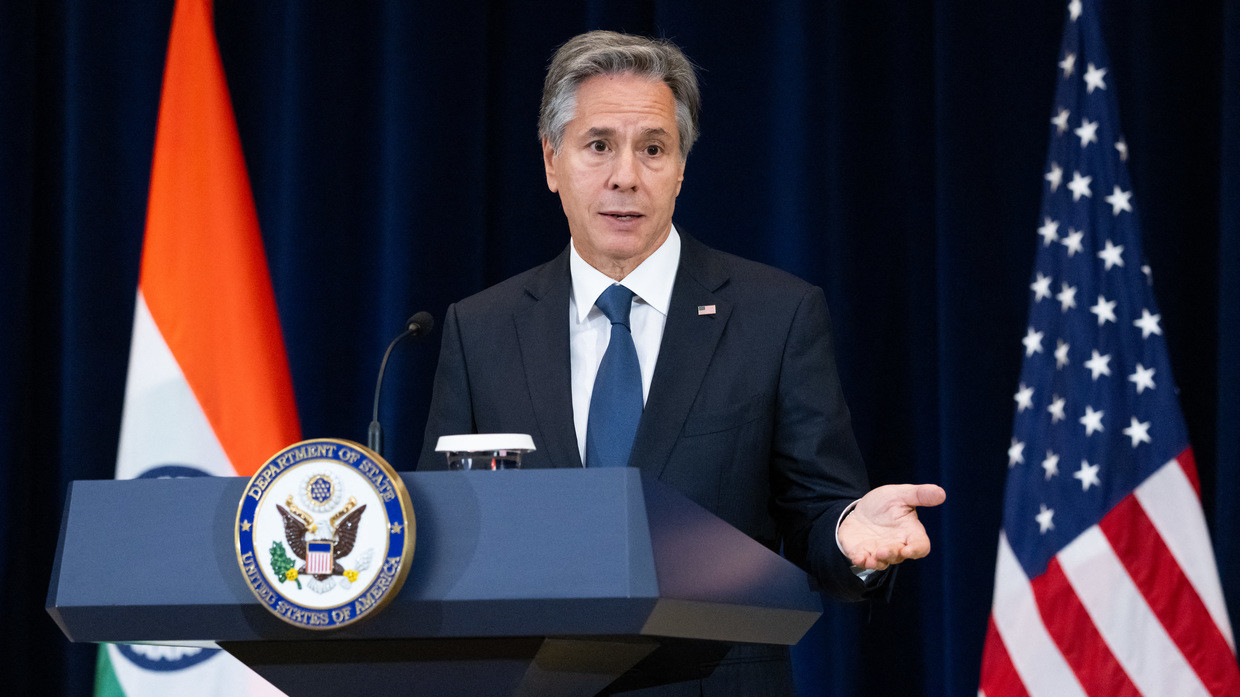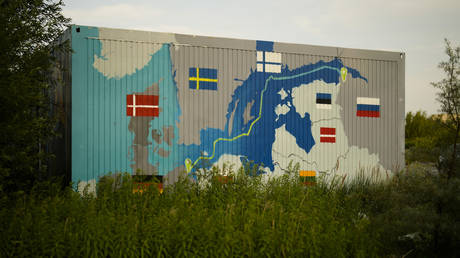Commenting on reports that the Nord Stream 1 and 2 pipelines have been disabled by sabotage or deliberate attacks, US Secretary of State Antony Blinken on Tuesday said such an attack is “in no one’s interest.” He added, however, that the current situation represents an opportunity for Europe.
“The leaks are under investigation. There are initial reports indicating that this may be the result of an attack or some kind of sabotage, but these are initial reports and we haven’t confirmed them yet. But if it is confirmed, that’s clearly in no one’s interest,” Blinken said during a joint press conference with Indian External Affairs Minister Dr. Subrahmanyam Jaishankar, who is visiting Washington.
Following up on the question, Blinken said the US priority was to impose a price cap on Russian oil exports and “surge” supplies of liquefied natural gas (LNG) to Europe. The US became the world’s largest LNG exporter this year, partly due to the embargo against Russia imposed by Washington and its allies.
While there are “clear challenges in the months ahead” in terms of Europe’s energy supply, “there is also a very significant opportunity to do two things,” Blinken pointed out. The first is to “finally end the dependence of Europe on Russian energy” and the second is to “accelerate the transition to renewables” so the West can address the “climate challenge.”
Both Nord Stream pipelines, which connect Russia to Germany under the Baltic Sea, lost pressure on Monday. Danish authorities discovered a massive gas leak near the island of Bornholm, and closed the area off to navigation. Berlin has been investigating the incident as a deliberate attack, either by pro-Ukrainian forces or as a “false flag” by Russia, German media reported, citing anonymous government officials.
Russia is “very concerned” about the situation and has called for an immediate investigation, the Kremlin said on Tuesday. Nord Stream’s operator said three undersea gas lines had suffered “unprecedented” damage, adding that it was impossible to estimate when service might be restored.
Nord Stream 1 had been in service since 2011, but has been operating under a reduced regimen since the end of August, with Russia citing technical difficulties caused by Western sanctions.
Nord Stream 2 was completed in September 2021 and fully pressurized, but Berlin froze its certification in February, prior to the Russian military operation in Ukraine. The pressure loss came amid rising protests in Germany, demanding the unblocking of the pipeline to deal with the worsening energy crisis.


